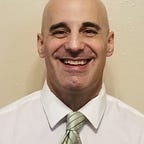Frustration and Pain of not Being Believed When Telling the Truth
Telling the truth and not being believed is a challenging experience to endure.
It’s a difficult mountain to climb to overcome a shoddy reputation, owning little-to-no credibility and not being seen worthy of or granted trust or the benefit of the doubt.
“To be persuasive we must be believable; to be believable we must be credible; credible we must be truthful,” Edward R. Murrow communicated.
All accurate yet what about when truth is being communicated and the perception is that the person speaking it is being untruthful or lying? How can one emotional respond to that successfully.
When someone has clearly committed wrongdoing, contributed to it or is found “guilty” by association, one’s reputation and life suffers. The psychology people must navigate with other people to be recognized as believable can be perplexing. Distrust is a powerful emotion and belief.
“People will generally adopt an Immovable-Obstinate mindset once confronted with information that triggers some emotive response, often tripping their own emotional or psychological defense mechanisms,” says Dr. Jeff Ditzell, a New York City psychiatrist.
This leads to tall and thick emotional walls quickly going up.
“This is generally done unconsciously and has the effect of slamming the ‘portcullis’ of our mind and setting our mindset to not allow further damaging information to be noticed or acknowledged by the person.”
This is a rejection of our attempted communication that may be rooted less in what someone wants to convey and more in the person communicating it. It is a protective and-or resistant act of power, even if it might come across as anger and resentment.
When a person is disappointed, discouraged or upset at not being believed, they can become defensive. While natural, that too creates a psychological reaction in the people who are determining that someone is not trustworthy even if facts and truth are being communicated.
“Generally, when people detect defensiveness in others, it is often interpreted as a telltale indicator of wrongdoing or might be interpreted as the workings of a guilty or worried mind,” Ditzell says.
When we’re aware that we’re not considered credible and worthy of trust and believability despite communicating facts and truth, there is a helpful approach to consider.
“Often, answering the question (to ourselves), ‘Did I do anything wrong,’ will provide an assurance to the self, provided the answer is ‘no’ of course, that will allow the person to weather the turbulence of a momentary lack of credibility or perceived lack of believability,” Ditzell says. “I think that this simple and practical method can provide a mental calmness and fortitude that can help sustain someone until the facts are available to support credibility.”
It’s not always fully possible to be believable yet it is possible to consistently build trust in small ways and not act or react in ways that trigger perceptions that link to negativity and create a false judgment and distrust.
Poise, patience, humility, quality listening, respect, forgiveness, kindness and endurance in it all go a long ways in avoiding triggering negativity in people.
Conducting oneself in a way that is devoid of egocentrism and more giving and communal can lessen distrust and create a more welcoming human interaction, making believability more possible.
Michael Toebe is a reputation specialist who helps individuals and organizations. He writes Red Diamonds Essays and Reputation Specialist Essays (both on the Medium platform) and analysis and advisory for online publications: Chief Executive, Corporate Board Member, New York Law Journal, Corporate Compliance Insights and Physicians Practice. He also publishes on LinkedIn and beBee and is the voice of the Red Diamonds Podcast.
